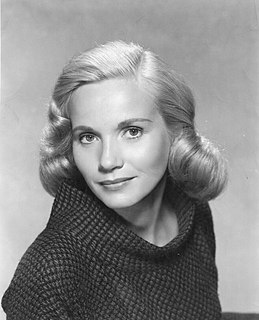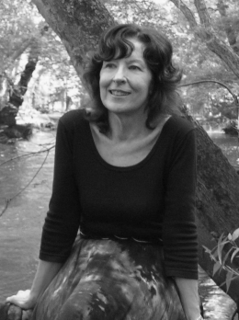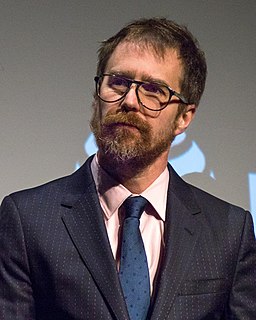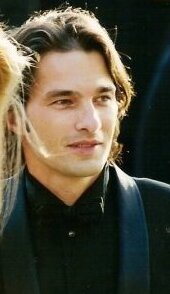A Quote by Eva Marie Saint
I can watch movies that I've been in, and if there's an emotional scene, I remember specifically what I was using, what I was thinking about, because I am very specific in how I work.
Related Quotes
All of my movies are about how I wish the world would work. I've made very few movies about how the world worked. I could name them on one and a half hands, about how my movies have been very reflective of how the world was exactly. A lot of my movies are really about the way I wish the world was, and that's what this whole art form is all about. It's an interpretive art form.
I'm very fortunate, and the movies that I've made, even from the very beginning, have been very eclectic. The thing for me is: Am I emotionally engaged in the idea? Is there something special about it? Does it capture my imagination? So everything that I do is simply something that turns me on. And I have the good fortune to be able to make bigger movies and television that ostensibly pay for the other ones. I don't mean literally finance the movies. But they allow me to work on things for very little pay. I do these things because I love them.
Because You have called me here not to wear a label by which I can recognize myself and place myself in some kind of a category. You do not want me to be thinking about what I am, but about what You are. Or rather, You do not even want me to be thinking about anything much: for You would raise me above the level of thought. And if I am always trying to figure out what I am and where I am and why I am, how will that work be done?
The plot is very important because writers have to play fair with their readers, but no one would care about the plot if the character work wasn't there. So, basically every book I work on starts with me thinking not just about the bad thing that's going to happen, but how that bad thing is going to ripple through the community, the family of the victim, and the lives of the investigators. I am keenly aware when I'm working that the crimes I am writing about have happened to real people. I take that very seriously.
I also think within the scene, a specific scene - if I were to play a part that I played 10 years ago now, my interpretation of that scene would be totally different. I would be making different choices. Because I can't somehow subtract all of the experiences that I've had in my life. And it's fascinating to see, because somewhere I'm very reflective in that. You know, I've been playing basically actually close to 40 years old, so I'm somewhere lost in age in this movie. But it's been fascinating to see that I can't subtract that time.
When I was a kid, I was watching the movies my parents wanted to watch. I came from a working class family, not specifically educated, so we were watching popular movies. My dad liked cowboy movies, so we were watching cowboy movies. Some of them were amazing. It’s a genre of movie I like very much.
I am astounded at my age with a 20-year-old daughter to discover that kids of her generation don't want to watch black and white movies. I understand that they gave up on silent films, but black and white? So, now movies have to be taught in academia because people don't know how to watch them, they don't know how to appreciate them.
I had invited 50 or 60 peers and friends, most of whom were parents, to see the film [Trust], and I asked about the last scene. It was interesting because it was split right down the middle, 50/50. About half the audience wanted it to end with the very emotional scene between Clive and Liana, and that feeling of realization and catharsis. And, the other half were adamant about keeping that last scene.




































